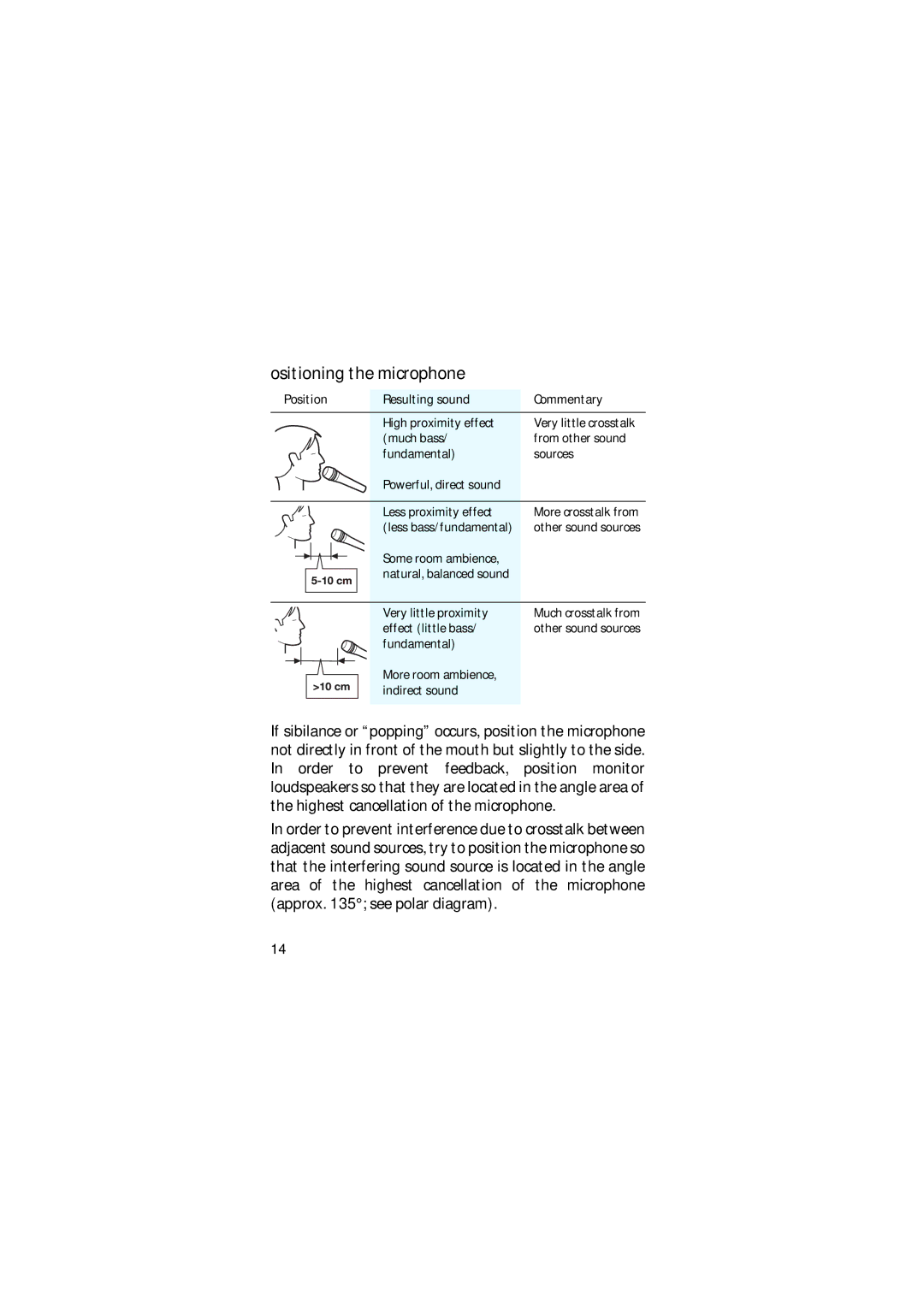
ositioning the microphone
Position | Resulting sound | Commentary |
| High proximity effect | Very little crosstalk |
| (much bass/ | from other sound |
| fundamental) | sources |
| Powerful, direct sound |
|
| Less proximity effect | More crosstalk from |
| (less bass/fundamental) | other sound sources |
| Some room ambience, |
|
| natural, balanced sound |
|
| Very little proximity | Much crosstalk from |
| effect (little bass/ | other sound sources |
| fundamental) |
|
| More room ambience, |
|
| indirect sound |
|
If sibilance or “popping” occurs, position the microphone not directly in front of the mouth but slightly to the side. In order to prevent feedback, position monitor loudspeakers so that they are located in the angle area of the highest cancellation of the microphone.
In order to prevent interference due to crosstalk between adjacent sound sources, try to position the microphone so that the interfering sound source is located in the angle area of the highest cancellation of the microphone (approx. 135°; see polar diagram).
14
